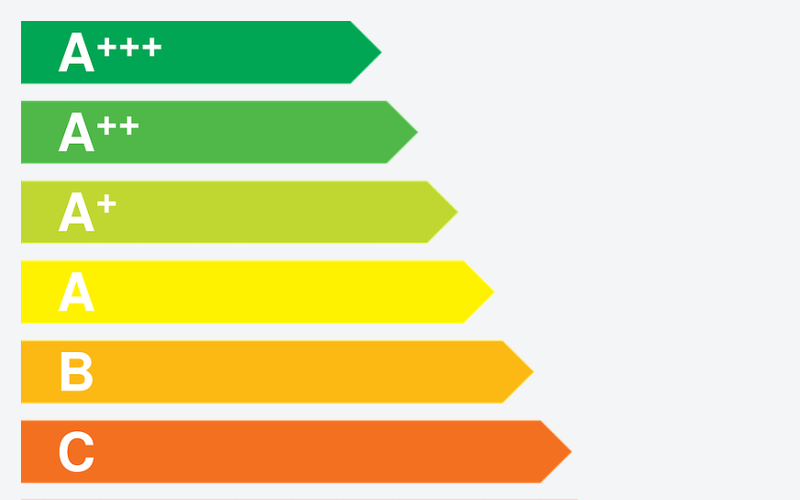PAS 2030 & PAS 2035: Q&A briefing
Updated December 2023

Q. Why have PAS 2030 and PAS 2035 been updated?
A. The BSI Retrofit Standards Task Group (RSTG) suggested updates to both PAS 2035 and PAS 2030. The proposed standards (based on suggestions from BSI, the BSI RSTG, TrustMark, DESNZ, and the Scottish Government) were subject to public consultation in early 2023.
BSI published the updated PAS 2035/2030:2023 standards on 28th September 2023.
Q. What are the main changes in the revised PAS 2030 & PAS 2035?
A. As well as updating the guides to reflect national policy rather than EU policy, the main changes are summarised below:
- The BEIS Retrofit Technical Guides have been included as references
- Greater emphasis on the Retrofit Contractor to reflect an emphasis on whole house retrofit rather than a measures-based approach.
- A Medium-Term Improvement is now required.
- An airtightness strategy to be provided that includes setting targets and testing to BS40101 with a plan to check that designed outcomes have been achieved.
- Strengthening the guidance on climate mitigation and adaptation.
- Requirements and guidance on moisture in buildings brought into line with BS5250.
- Scale retrofit involving multiple dwellings and using archetypes initially for planning but still requiring individual dwellings to be evaluated.
- Removing risk pathways but making the assessment more detailed and design more comprehensive, including advice from inception to handover.
- Qualifications have been clarified and strengthened for traditional (historic) buildings.
- A lot of changes have been made to the design and provision of ventilation.
- Pre-installation Buildings Inspections by an appropriately qualified person required for all insulation or a recognised pre-notification process under an industry QA scheme.
- Provision has also been included to allow distressed heating systems to be replaced and retrospectively comply with PAS 2035.
Q. When does the revised PAS 2030 & PAS 2035 come into operation?
A. PAS 2030 & 2035: 2023 were published on 28th September 2023 and will come into full operation from the end of March 2025. The existing 2019 standards will be fully withdrawn at midnight on 30th March 2025. There is now an 18-month transition period to allow industry, training providers and certification bodies to adopt the new 2023 standards. Certification bodies have 6 months to transition and to develop their training schemes. There will also be changes to the Data Warehouse lodgement processes and evidence.
The Government is committed to using PAS 2030 & 2035 for all its retrofit schemes. While, all the current SHDF schemes are running under the 2019 editions, it is expected that future ones will require the new 2023 editions to be followed. It is important the sector becomes familiar with the latest editions and starts to use them as soon as possible. Service providers who do this will be better prepared for future retrofit funding rounds and be more able to help clients and sub-contractors adopt the new standards to develop and deliver effective retrofit projects. Funding is available for landlords who have never delivered previous retrofit projects.
During the transition period Trustmark will publish updates and further information.
Q. What happens to any uncompleted projects that had been started under PAS 2030 & 2035: 2019?
A. The transition period agreed with BSI, the Department for Energy Security and Net Zero (DESNZ) and the United Kingdom Accreditation Service (UKAS) before the PAS 2035:2023 and PAS 2030:2023 specifications become mandatory. This transition period is designed to help existing projects started under the 2019 standards.
Q. What does the revised PAS 2030 cover?
A. PAS 2030: 2023 is the specification for installers to follow when selecting materials, components, and methods of installation to improve a home’s energy efficiency.
Q. Who is PAS 2030 for?
A. Any organisation installing products and / or systems designed to improve the energy efficiency of existing homes. It will be essential to installers of energy efficiency measures and to certification bodies looking to assess compliance with PAS 2030.
Q. What should social landlords do to improve the quality of energy efficiency improvements they undertake to existing dwellings?
A. Social landlords should adopt PAS 2030: 2023 and PAS 2035: 2023 when commissioning measures to improve the energy efficiency of existing dwellings and to undertake fuel saving improvements. These standards can also be referenced when using the NHF Schedule of rates.
Q. What roles and qualifications are specified by PAS 2035: 2023?
A. PAS 2035: 2023 identifies five distinct roles – Retrofit Advisor, Retrofit Assessor, Retrofit Coordinator, Retrofit Designer and Retrofit Evaluator. The same person can perform multiple roles if suitably qualified and any conflict of interest is managed. TrustMark, a Government Endorsed Quality Scheme, has published information explaining these roles, the required qualifications for which buildings.
Q. What risk categories are covered by PAS 2035: 2023?
A. PAS 2025: 2023 sets out the requirements and roles for low-, medium- and high-risk projects.
Q. How does PAS 2035: 2023 relate to traditional or historic buildings?
A. PAS 2035: 2023 specifies that energy efficiency improvements to traditional or historic buildings should, dependant on the risk category, comply with BS7913: Guide to the Conservation of Historic Buildings. In most cases they should be treated as high-risk projects. It also requires some roles to hold an SQA Level 3 Award in energy efficiency and retrofit of traditional buildings – this includes training on significance analysis and heritage impact assessments as well as technical issues.
It is estimated that up to 35% of UK homes are traditional buildings, mainly differentiated by having solid, vapour permeable walls as opposed to cavity walls. IHBC (Institute for Historic Building Conservation) has published ‘Retrofitting of Traditional Buildings’.
Q. How can social landlords and contractors prepare?
A. Social landlords and their contractors can familiarise themselves with the new PAS 2030 / 2035 2023. In particular, they should look at the key changes and understand why they have been made. They can assess what gaps there are in their capabilities, qualifications and certifications that could prevent them from operating under the 2023 standards. There will be benefits and some commercial advantage for landlords and contractors that start using these standards now because they will be familiar with how they will operate and ready to comply when they become mandatory.
It is important for landlords to have the right skills to design and plan retrofit works if they want to deliver decarbonisation projects effectively. Experience has shown it is preferrable for landlords to have at least two qualified Retrofit Coordinators when preparing schemes and bids. This will become more important with the 2023 standards requiring the Retrofit Coordinator to visit the house or building at least once.
Q. How can you keep up to date?
A. Social landlords and their contractors can sign up with TrustMark to be kept up to date.
___________________________________________________________________________________________________________________________
With thanks to NHMF Adviser, Andrew Burke for compiling this Q&A.


